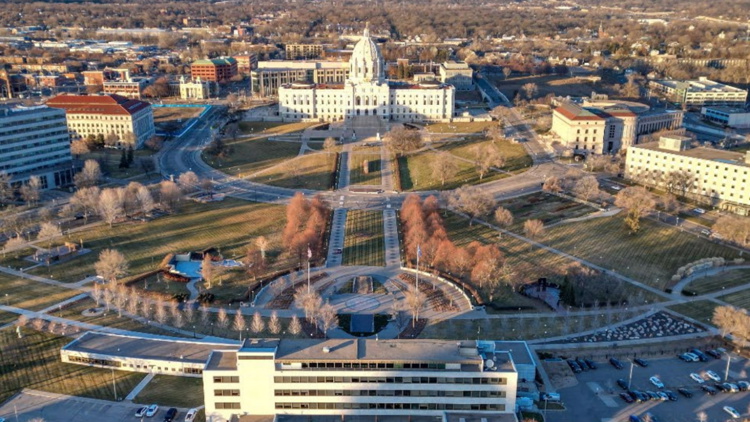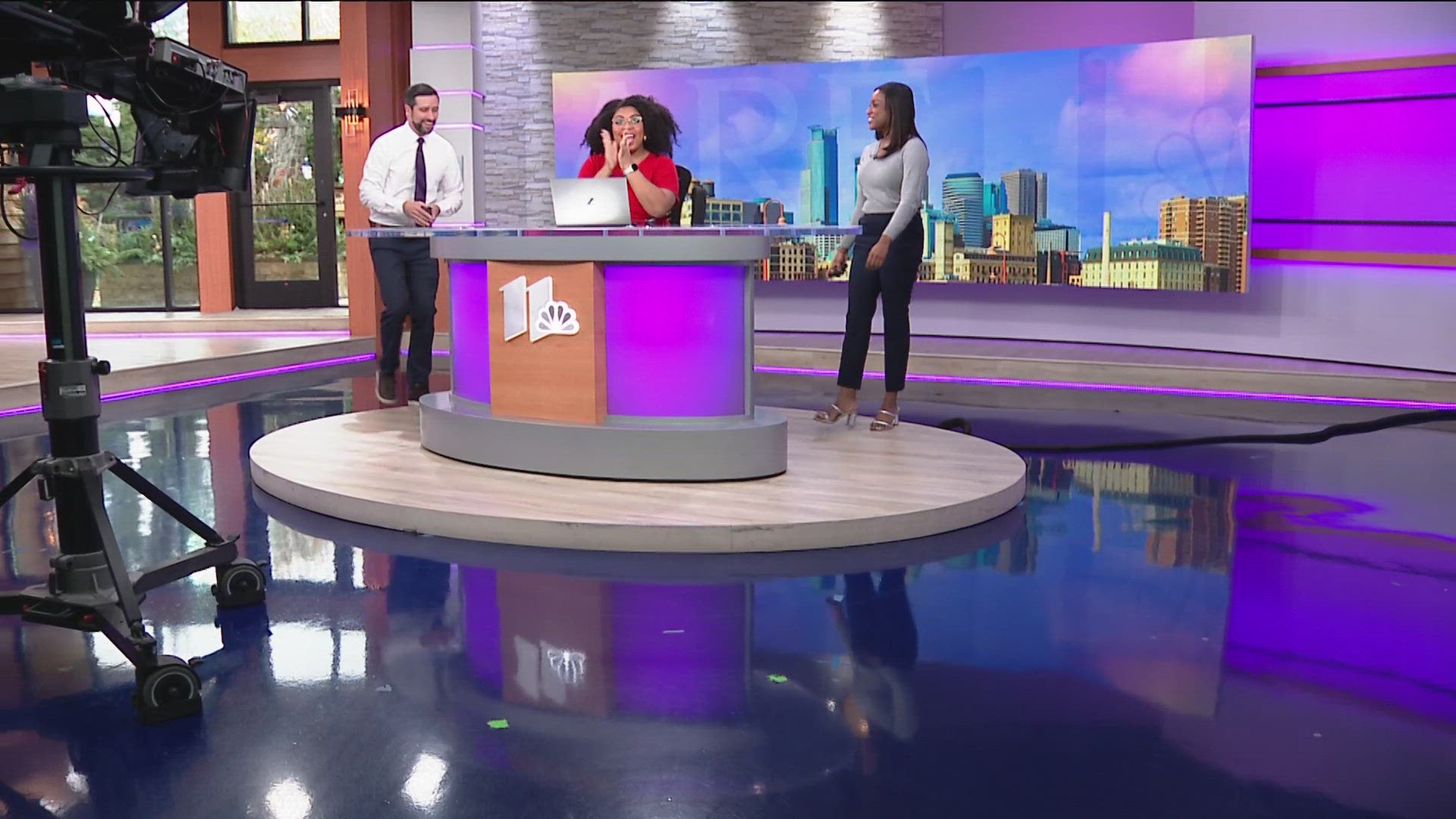ST PAUL, Minn. — July 1 is the start of the new fiscal year and also the day when some new laws go into effect in Minnesota. These new laws were passed in the 2024 legislative session, except for the reassignment of duties to the Department of Children, Youth and Human Services. That law was passed in 2023 and only goes into effect this year.
According to the Minnesota House of Representatives, here are some of the new laws:
Digital Fair Repair Act
According to the office of the Minnesota Attorney General, this act requires manufacturers of certain electronic devices to make documentation, parts, and tools for diagnosis, maintenance or repair available to independent repair shops and owners on fair and reasonable terms. This applies to equipment sold on or after July 1, 2021.
Restrictive employment covenants banned
This provision in the 2024 labor and industry policy law prohibits the use of restrictive employment covenants and covenants already in place will be void and unenforceable. An example of a restrictive covenant would include employment contracts like non-compete, non-disclosure, and non-solicitation agreements.
Service providers, who lawmakers define as “any partnership, association, corporation, business, trust, or group of persons acting directly or indirectly as an employer or manager for work contracted or requested by a customer” — must give notice to employees about this law if their contracts contain a restrictive provision. According to the House, “This section does not apply to workers providing professional business consulting for computer software development and related services who are seeking employment through a service provider with the knowledge and intention of being considered for a permanent position of employment with the customer as their employer at a later date.”
State money for job training
This new law appropriates $12.16 million from the Workforce Development Fund, $11.69 million from the General Fund and grants $23.85 million to the Department of Employment and Economic Development for job training and economic development programs in 2024.
There are nine main programs to receive funding, including $2.5 million for Launch Minnesota to help Minnesotan entrepreneurs or start-ups. Many of them are aimed at supporting local businesspeople.
Early childhood, K-12 and HHS funding
Kids in Minnesota are getting a $43 million funding boost to improve child literacy statewide. The vast majority of this money, $37.22 million, will go to the Minnesota Reading to Ensure Academic Development Act, an initiative the Department of Education said aims “to have every child reading at or above grade level every year, beginning in kindergarten, and to support multilingual learners and students receiving special education services in achieving their individualized reading goals.”
Other portions of funds will offset local taxes supporting schools, add a state school librarian position at the Department of Education and give money to other agencies related to children and families.
When children start school again in the fall, there will be changes they see as well, including:
- American Indian cultural practice, observance, or ceremonies will count as excused religious absences from school
- An annual review and revision of a personal learning plan to ensure a student is on track to graduate will be required
- Student journalists have the right to exercise freedom of speech and freedom of the press in school-sponsored media and a school district or charter school will have to adopt and publish a student journalist policy
Filling school board vacancies and deep fake technology
If a school board vacancy happens less than two years prior to the term's expiration, another person can be appointed for the rest of the term without needing a special election. The school board may, but is not required to, fill a vacancy that occurs less than 90 days before the term expires. But if the board member is removed for proper cause, a special election must be held as soon as possible to fill the vacancy on a uniform election date.
A part of this bill also includes rules about misinformation in the election process. As of July 1, a candidate forfeits their nomination or office if they're found guilty of using deep fake technology to influence an election. The law also amends the time frame for using a deep fake to include 90 days before a political party nominating convention, or after the absentee voting period begins prior to a presidential primary, state primary, local primary, special primary, or special election.
This does not apply to cable television systems or broadcasters who disseminate a deep fake produced by a candidate if the dissipation is required by federal law.
Millions in lottery proceeds will protect Minnesota's environment
The Environmental and Natural Resources Trust Fund covers more than 100 projects and will receive $79.64 million in funding this year.
Funds will be used for land acquisition and recreation projects, environmental education, water resources research, air quality and more.
These projects were recommended by the Legislative-Citizen Commission on Minnesota Resources, which was established in 1988 to provide "a long-term, consistent, and stable source of funding for activities that protect, conserve, preserve, and enhance Minnesota's ‘air, water, land, fish, wildlife, and other natural resources’ for the benefit of current citizens and future generations.”
Money is generated from the Minnesota State Lottery.
Plain language required on driver's license tests
This law aims to make sure license tests examine how well drivers understand the rules of the road, instead of testing their ability to decode complex sentences, lawmakers said.
A new written test must be written by the Department of Public Safety by Feb. 1, 2025, and the test needs to be “organized to serve the reader's needs and written using clear, simplified language.”
Language on the new tests should:
- Use the word “you” to address test takers directly
- Use an active voice
- Use concrete, familiar words
- Avoid long, complex sentences
- Minimize abbreviations
- Omit double negatives and terms like "except for," "unless," and "indicated otherwise"
Retail delivery fee for goods over $100
A 50-cent fee on retail delivery orders for goods that cost at least $100 is now in place. This fee will generally apply when the sale is subject to state general sales tax but also includes clothing. It will not apply to prepared foods and baby products.
Retailers with annual sales less than $1 million will be exempt, as will marketplace providers when selling for a retailer that made less than $100,000 in retail sales in the previous calendar year through a marketplace provider like Facebook or Craigslist.
Money from this fee and some funds from the general sales tax from motor vehicle repair and replacement parts will go into a new transportation advancement account:
- 36% to metropolitan counties with a new formula-based allocation
- 27% to small cities, distributed under the small cities assistance program
- 15% to larger cities under a new account established in the law
- 11% to town roads
- 10% to the county state-aid highway fund
- 1% to support food delivery programs such as Meals on Wheels
Watch more Minnesota politics:
Watch the latest political coverage from the Land of 10,000 Lakes in our YouTube playlist:
WATCH MORE ON KARE 11+
Download the free KARE 11+ app for Roku, Fire TV, Apple TV and other smart TV platforms to watch more from KARE 11 anytime! The KARE 11+ app includes live streams of all of KARE 11's newscasts. You'll also find on-demand replays of newscasts; the latest from KARE 11 Investigates, Breaking the News and the Land of 10,000 Stories; exclusive programs like Verify and HeartThreads; and Minnesota sports talk from our partners at Locked On Minnesota.
- Add KARE 11+ on Roku here or by searching for KARE 11 in the Roku Channel Store.
- Add KARE 11+ on Fire TV here or by searching for KARE 11 in the Amazon App Store.
- Learn more about the KARE 11+ app for Apple TV in the Apple App Store.
- Learn more about KARE 11+ here.



